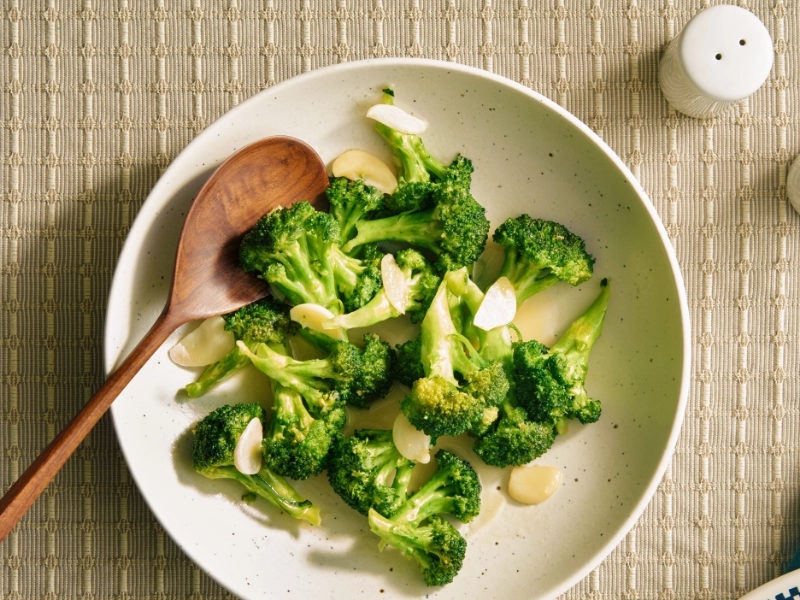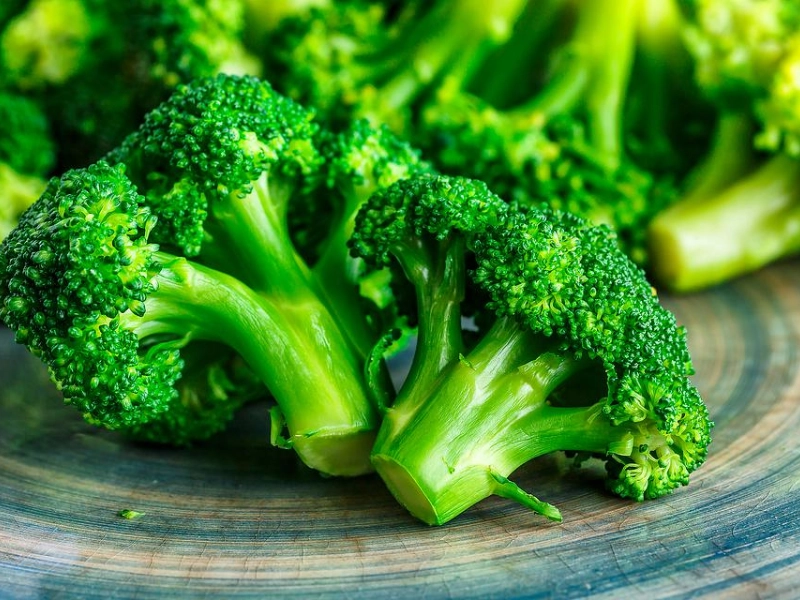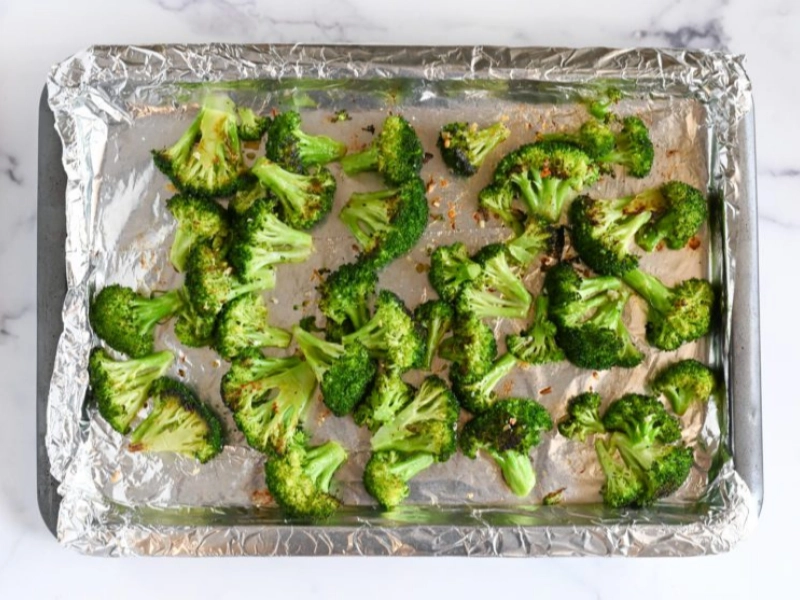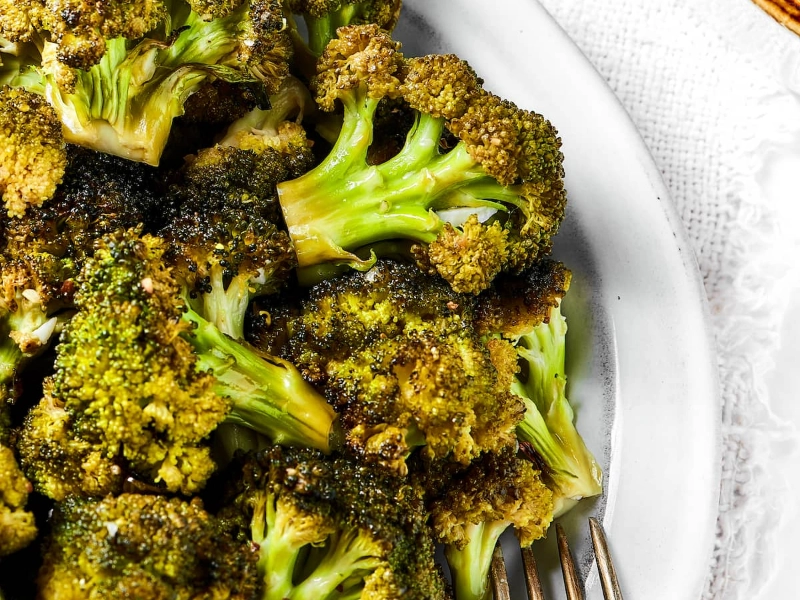Often considered as a superfood, broccoli is high in vital elements that support general health. A less well-known advantage of it is its capacity to boost bodily collagen synthesis. A necessary protein, collagen gives connective tissues, bones, and the skin structure. This post looks at how broccoli's nutritional profile, collagen synthesis-promoting properties, and easy approaches to include it into your diet help to improve skin and joints.
 Particularly in helping to produce collagen, broccoli is high in vitamins and minerals vital for general health. It is a great supply of vitamin C, which is absolutely vital for the synthesis of collagen. Strong antioxidant vitamin C helps to build collagen fibres and shields the skin from damage caused by free radicals as well. Furthermore adding to its health advantages are broccoli's other vital minerals, vitamin K, folate, and fibre.
Furthermore improving broccoli's function in collagen generation are sulphur compounds present in it. Collagen is produced from sulphur, which also helps preserve the integrity of connective tissues. Including broccoli in your diet can help you to benefit from its rich nutritional profile in support of collagen formation and good skin and joints.
Particularly in helping to produce collagen, broccoli is high in vitamins and minerals vital for general health. It is a great supply of vitamin C, which is absolutely vital for the synthesis of collagen. Strong antioxidant vitamin C helps to build collagen fibres and shields the skin from damage caused by free radicals as well. Furthermore adding to its health advantages are broccoli's other vital minerals, vitamin K, folate, and fibre.
Furthermore improving broccoli's function in collagen generation are sulphur compounds present in it. Collagen is produced from sulphur, which also helps preserve the integrity of connective tissues. Including broccoli in your diet can help you to benefit from its rich nutritional profile in support of collagen formation and good skin and joints.
 One of the main players in collagen generation is vitamin C, hence broccoli is among the top providers of this vital mineral. As a cofactor for enzymes engaged in collagen formation, vitamin C helps to stabilise and cross-link collagen molecules. Maintaining the body's collagen's strength and structure depends on this process.
Furthermore, the antioxidant characteristics of vitamin C guard collagen from oxidative stress-induced breakdown. This implies that vitamin C not only promotes collagen production but also helps to retain it, so ensuring that your skin stays young and strong. Regular broccoli eating helps you increase your vitamin C intake and enhance your body's capacity to generate and preserve collagen efficiently.
One of the main players in collagen generation is vitamin C, hence broccoli is among the top providers of this vital mineral. As a cofactor for enzymes engaged in collagen formation, vitamin C helps to stabilise and cross-link collagen molecules. Maintaining the body's collagen's strength and structure depends on this process.
Furthermore, the antioxidant characteristics of vitamin C guard collagen from oxidative stress-induced breakdown. This implies that vitamin C not only promotes collagen production but also helps to retain it, so ensuring that your skin stays young and strong. Regular broccoli eating helps you increase your vitamin C intake and enhance your body's capacity to generate and preserve collagen efficiently.
 Apart from vitamin C, broccoli is bursting with other antioxidants that are quite important for the condition of skin. By helping free radicals to be neutralised, antioxidants prevent early ageing and damage of skin cells. Antioxidants help two proteins called collagen and elastin, which maintain skin firmness and elasticity, by lowering oxidative stress.
Sulforaphane among other antioxidants in broccoli has been demonstrated to improve skin protection against UV radiation and environmental toxins. This preventive action preserves collagen's integrity, so guaranteeing that your skin seems young and vibrant. One great approach to increase your antioxidant intake and improve skin health is including broccoli into your diet.
Apart from vitamin C, broccoli is bursting with other antioxidants that are quite important for the condition of skin. By helping free radicals to be neutralised, antioxidants prevent early ageing and damage of skin cells. Antioxidants help two proteins called collagen and elastin, which maintain skin firmness and elasticity, by lowering oxidative stress.
Sulforaphane among other antioxidants in broccoli has been demonstrated to improve skin protection against UV radiation and environmental toxins. This preventive action preserves collagen's integrity, so guaranteeing that your skin seems young and vibrant. One great approach to increase your antioxidant intake and improve skin health is including broccoli into your diet.
 Broccoli is easy and flexible addition to your diet. This nutrient-dense vegetable is easy to acquire the health advantages from since you may enjoy it in several ways. As a side dish, steam, roast, or stir-fry broccoli; toss it into salads or mix it into smoothies for a further vitamin boost.
Think about making a broccoli and cheese casserole or adding broccoli into pasta recipes for a great and sensible dinner. Raw enjoyment of it might also come via hummus or a yoghurt dip for a healthy snack. Finding inventive methods to incorporate broccoli into your diet will help you boost general health and collagen synthesis.
Broccoli is easy and flexible addition to your diet. This nutrient-dense vegetable is easy to acquire the health advantages from since you may enjoy it in several ways. As a side dish, steam, roast, or stir-fry broccoli; toss it into salads or mix it into smoothies for a further vitamin boost.
Think about making a broccoli and cheese casserole or adding broccoli into pasta recipes for a great and sensible dinner. Raw enjoyment of it might also come via hummus or a yoghurt dip for a healthy snack. Finding inventive methods to incorporate broccoli into your diet will help you boost general health and collagen synthesis.
Although broccoli is a great source of nutrients that boost collagen synthesis, for best health you still have to keep a balanced diet. A diet high in fruits, vegetables, whole grains, lean proteins, and good fats provide the nutrients needed for collagen formation and general health. Foods high in collagen generation and skin health also include berries, nuts, seeds, and fish. Maintaining skin suppleness and boosting collagen function also depend on being hydrated. Drinking lots of water and including hydrating foods like cucumbers and watermelon will assist your skin stay looking good. Maximising your body's collagen production and enhancing your general health can be achieved by concentrating on a balanced diet including a range of nutrient-dense meals.
Apart from nutrition, various elements of lifestyle might affect the body's production of collagen. Frequent physical exercise promotes circulation to facilitate the delivery of nutrients required for collagen formation. Furthermore encouraging the synthesis of growth hormones, which are involved in the development of collagen is exercise. Moreover, avoiding smoking and too strong sun exposure helps preserve collagen levels. While UV light can cause oxidative damage to skin cells, smoking exposes dangerous substances that can breakdown collagen. You may improve your body's capacity to generate collagen and preserve healthy skin and joints even more by leading a good lifestyle including frequent exercise and defensive against environmental damage.